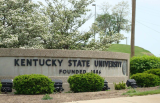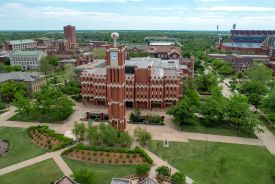University Presidents Defend Negotiation Tactics to End Pro-Palestinian Protests at Congressional Hearing
ByIn recent months, universities across the United States have found themselves at the center of a contentious debate over how to address pro-Palestinian protests on campus.
Northwestern University President Michael Schill and Rutgers University President Jonathan Holloway, among others, have faced scrutiny for their handling of these protests, particularly regarding allegations of antisemitism and the use of police force.
Negotiation Over Confrontation: University Presidents' Approach
One of the central issues at play is the approach taken by university presidents in dealing with these protests. Both Schill and Holloway have defended their decisions to engage in negotiations rather than resorting to police force to dismantle pro-Palestinian encampments on their campuses.
Schill emphasized the importance of ensuring the safety of students and faculty, stating, "We had to get the encampment down." Schill explained that using the police to ensure safety was not a viable option for them. Likewise, Holloway emphasized the importance of engaging students in dialogue as their primary approach rather than resorting to police intervention.
By choosing negotiation over confrontation, these university presidents aimed to defuse tensions and find peaceful resolutions to complex and sensitive issues. However, their decisions have not been without controversy, with some critics accusing them of caving in to antisemitic demands.
READ MORE : University Leaders Testify Before House Committee On Antisemitic Incidents, Campus Protests
Criticism and Controversy: Balancing Free Speech and Safety
The handling of pro-Palestinian protests on college campuses has raised questions about the delicate balance between protecting free speech and ensuring the safety of students and faculty. University leaders are tasked with upholding the principles of academic freedom and free expression, even when faced with challenging and controversial viewpoints.
Gene Block, the chancellor of the University of California, Los Angeles (UCLA), pointed out the difficulties that public universities encounter when dealing with these matters. He explained that public universities are in a challenging position as they strive to protect students from discrimination while also preserving freedom of speech.
Block's comments underscore the complexities involved in addressing protests that touch on deeply held beliefs and political sensitivities. While universities are committed to fostering an environment of open dialogue and diverse perspectives, they must also ensure the safety and well-being of their campus communities.
Moving Forward: Lessons Learned and Paths Ahead
As universities reflect on their handling of pro-Palestinian protests, there are lessons to be learned and paths forward to be considered. The use of negotiations as a tool to address contentious issues has proven effective in some cases, but questions remain about the long-term implications of these decisions.
Schill and Holloway's testimonies before the House Education and the Workforce Committee shed light on the complexities of addressing pro-Palestinian protests on college campuses. While their decisions may have been met with criticism, they highlight the importance of engaging in dialogue and seeking peaceful resolutions to conflicts.
Universities must continue to uphold the principles of free speech and academic freedom while also ensuring the safety and well-being of their campus communities. By navigating these challenges with care and sensitivity, university leaders can help foster an environment that promotes open dialogue and mutual understanding.
© 2025 University Herald, All rights reserved. Do not reproduce without permission.








